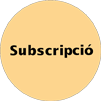
Temps d'Educació
2n semestre 2013
- Consell Editorial: Antoni Sans (director de l’Institut de Cičncies de l’Educació); Anna Escofet (degana de la Facultat de Pedagogia); Albert Batalla (degŕ de la Facultat de Formació del Professorat); Gemma Fonrodona (vicerectora d’Estudiants i Política Lingüística); Manel Viader (vicerector de Política Docent)
- Direcció: Conrad Vilanou (Universitat de Barcelona)
- Cap de Redacció: Enric Prats (Universitat de Barcelona)
Temps d’Educació estŕ subjecta a una llicčncia Creative Commons 3.0 de Reconeixement - No Comercial - Sense Obres Derivades. Podeu consultar la llicčncia completa a: http://creativecommons.org/licenses/by-nc-nd/3.0/es/deed.ca
La revista no es fa responsable de les idees i opinions expressades en els articles.
Per a enviament d'articles, consulteu la pŕgina de Normes de publicació.
Temps d’Educació avalua els articles pel sistema de doble cec per pars. La revista estŕ indexada a Raco, CBUC (Universitats de Catalunya), Ulrich (Pro Quest), In-Recs (Universitat de Granada), CARHUS (Generalitat de Catalunya), ISOC (CSIC), Dialnet (Universitat de la Rioja), Latindex (UNAM, Mčxic), ERIH (European Science Foundation), Francis-Inist (CNRS), DOAJ (Open Access), Sociological Abstracts (Pro Quest, Bathesda), OEI (Estados Iberoamericanos), DICE (CSIC), MIAR (UB), RESH (CCHS) i REDINET (MECD).
Dipňsit legal: B-23.289-2012
ISSN: 2014-7627
Monografia. L’aprenentatge integrat de continguts i llengua estrangera (AICLE) a Catalunya. Estudis i experičncies
Departament d'Ensenyament. Generalitat de Catalunya
Introduction: from Catalan immersion to foreign language CLIL
In today's world, there are very few places where a person can spend an entire lifetime in contact with only one language. New digital technologies have brought us all into contact with songs, texts, films, political voices, and other cultural manifestations in a variety of languages, including some we may never have heard of. Learning languages becomes a way of both enlarging our understanding of the complex global world where we live, and of increasing our possibilities of entering other cultures and societies.
Catalonia is an autonomous community in Spain that projects its language as a vital part of its history and cultural identity. People live every day in at least two official languages: Catalan and Spanish. In addition, recent immigration has brought us in contact with languages that were hardly known in earlier times, such as Amazigh, Chinese, Ukrainian, Urdu, etc. Plurilingualism is more and more a reality, in this diverse society that considers languages as tools for social improvement, European mobility and future employability (Council of Europe, 2011). Enlarging everyone’s language learning options is a more inclusive approach than just facilitating immigrants' acquisition of the local language; it also implies the possibility of maintaining original family languages and the optional spreading of new languages to other learners to empower the whole community for future needs.
In today's world, there are very few places where a person can spend an entire lifetime in contact with only one language. New digital technologies have brought us all into contact with songs, texts, films, political voices, and other cultural manifestations in a variety of languages, including some we may never have heard of. Learning languages becomes a way of both enlarging our understanding of the complex global world where we live, and of increasing our possibilities of entering other cultures and societies.
Catalonia is an autonomous community in Spain that projects its language as a vital part of its history and cultural identity. People live every day in at least two official languages: Catalan and Spanish. In addition, recent immigration has brought us in contact with languages that were hardly known in earlier times, such as Amazigh, Chinese, Ukrainian, Urdu, etc. Plurilingualism is more and more a reality, in this diverse society that considers languages as tools for social improvement, European mobility and future employability (Council of Europe, 2011). Enlarging everyone’s language learning options is a more inclusive approach than just facilitating immigrants' acquisition of the local language; it also implies the possibility of maintaining original family languages and the optional spreading of new languages to other learners to empower the whole community for future needs.
< Torneu





